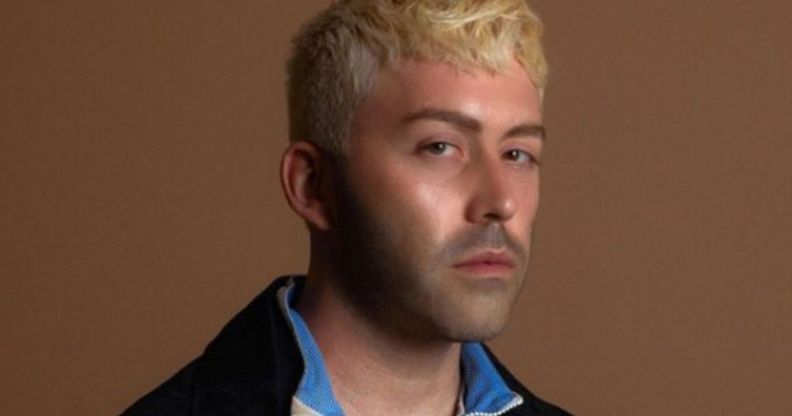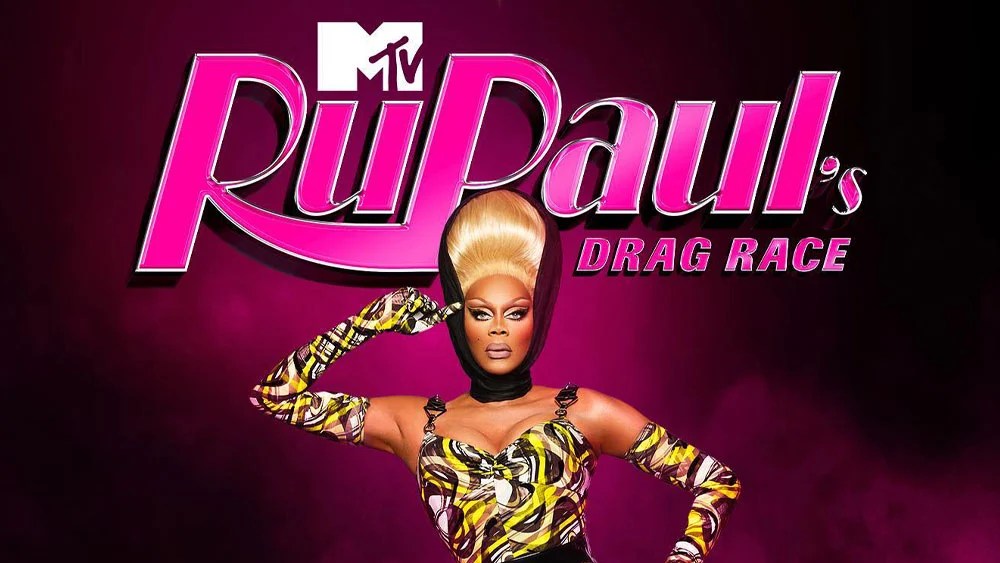Drag Race songwriter Leland spills the tea on what working with RuPaul is really like

Leland has written some of RuPaul’s Drag Race’s most iconic Rusical numbers and songs. (Lelan/Instagram)
Singer, songwriter and producer Leland is back on Drag Race for season 15, and is starting a “new chapter” of music.
Leland returned to the fold for episode six, helping the season 15 queens record their verses for the girl group challenge.
He’s the musical genius behind some of the most popular songs from the Drag Race franchise, including “UK Hun?” and “Break Up (Bye Bye)”.
He’s also solidified himself as a talented songwriter and pop artist in his own right, working with the likes of Selena Gomez and Troye Sivan throughout his career.
PinkNews caught up with Leland as he releases his latest track, “Bad at Letting Go”.
Congratulations on your new single, “Bad at Letting Go”, how does it feel to be releasing new music?
Thank you so much! The process of putting this next chapter of music together, it’s exciting, and it’s a little scary because the longer you don’t put out music, the less you start to feel like an artist.
I was chatting with my friends at Spotify and they launched a programme to promote LGBTQ+ artists called Glow, and they reached out saying [they’d] love to have me participate. It wasn’t a decision I made on my own. It’s a decision that was made when I chatted with my friends and my management. Everyone in this process has made me so grateful for the people that are around me because we all said: “F**k it, let’s do it’, and the song “Bad at Letting Go” came out two-and-a-half weeks later.
Your voice on the record sounds like a fusion of country with queer pop. Who influences your music?
There was a lot of fear about putting my voice on songs because I don’t know what I sound like. I don’t know how my voice is perceived until I hear it from people, so that’s interesting to hear. I totally get what you mean, I grew up listening to country, I grew up listening to soul and I grew up listening to a lot of Christian music before I discovered the likes of Prince.
I love 80s, rich anthemic voices. I can sing pretty high if I want to but I love the challenge of writing a great melody in my comfortable lower register. That translated when I’ve worked on songs with Selena Gomez. My influences are across the board from Rufus Wainwright to (French singer and actress] Edith Piaf, but I also listen to a lot of Charli XCX and Muna. My songs become this amalgamation of everything that I love.
You’ve become a familiar face on RuPaul’s Drag Race coaching queens with their verses on songs. What’s the best thing about that?
The most fun is having a queen [who] steps up to the microphone and is so nervous, so uncomfortable, has maybe never done this before, and within a very limited amount of time, getting them to go from zero per cent confidence to 100 per cent and bringing out the artist.
The biggest trick that I [tell the queens] is that you just have to pretend in this moment that you are a f**king pop or rock star, because the second you believe it and let go, something magical will happen. It’s so gratifying and nerve-racking because I’ve got the same amount of time with each queen, whether or not they are fully prepared.
There’s nothing more gratifying than having a queen take off their headphones and walk back with a smile because they’re really happy with what they did. It’s so much fun, too.
Do you have a favourite song that you’ve created for the show?
Right now, it’s definitely “UK Hun?” I love “Break Up (Bye Bye)” as a close second, but “UK Hun?” has encapsulated the absurdity of Drag Race. That song, to me, was the centre point of pop music and comedy and the icing that only Drag Race could put on a song.
It also felt like a pure expression of myself and when the stars align and you have queens write verses like they did, it showcased what drag is beautifully. It not only [had an impact on] culture, it also [had an impact] on mainstream culture without the support of a major label. It made an impact because of what it was. It was ridiculous, but it was right.
What is it like working with Mama Ru?
It’s a dream come true that I did not know I had as an inspiring songwriter and closeted gay boy in Mississippi. Working with Ru is a never-ending course on music, on things that came before my time. Ru is so knowledgeable in music, in production, in what we should be acknowledging and what we should be celebrating.
A lot of my job with Drag Race is sitting with Ru and [executive producer] Tom Campbell around a laptop watching YouTube videos of things that I’ve never seen before. Working with Ru is so endlessly inspiring because I get to work with someone [who] has been doing this for so long but with the same ambition as someone who’s just moved to LA. It should be intimidating but it’s not because Ru makes an environment so warm. My number-one job description is to make Ru laugh. If there’s a production moment that we can use to make Ru laugh, that’s really the goal. I can’t believe that I get to call Ru a friend and a collaborator and we’re only getting started, which is so exciting to me.

Many queer artists around the world look to you for inspiration. Do you have any advice for them?
Absolutely. The one thing that I can’t recommend enough is being as self-sufficient as possible. Before I could ever pay someone to produce a song for me, I was producing my own music. It was absolutely terrible, but I was doing it. Seek out opportunities, don’t wait for things to come to you. I’ve always had this tenacity that I initially didn’t know how to channel and it probably came off as annoying to people. But to channel that tenacity into seeking opportunities for yourself is so important.
It feels more possible now with the resources that queer artists have with programmes such as Glow, where Spotify is putting a spotlight on global, smaller queer artists. Make sure to have quality music when that opportunity comes.
Leland’s new single “Bad at Letting Go” is out now across all streaming services.
How did this story make you feel?

